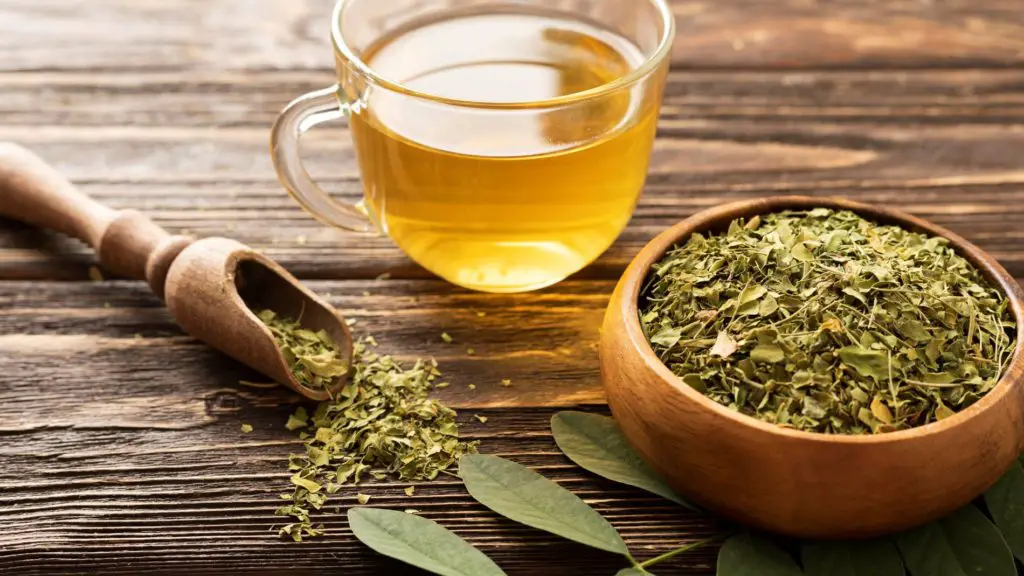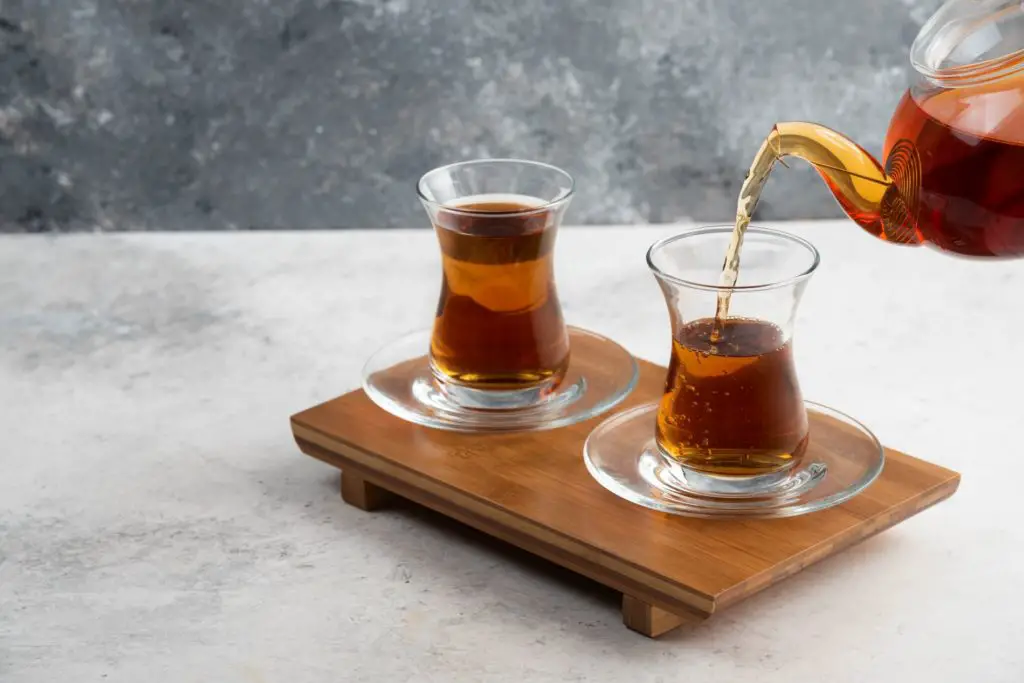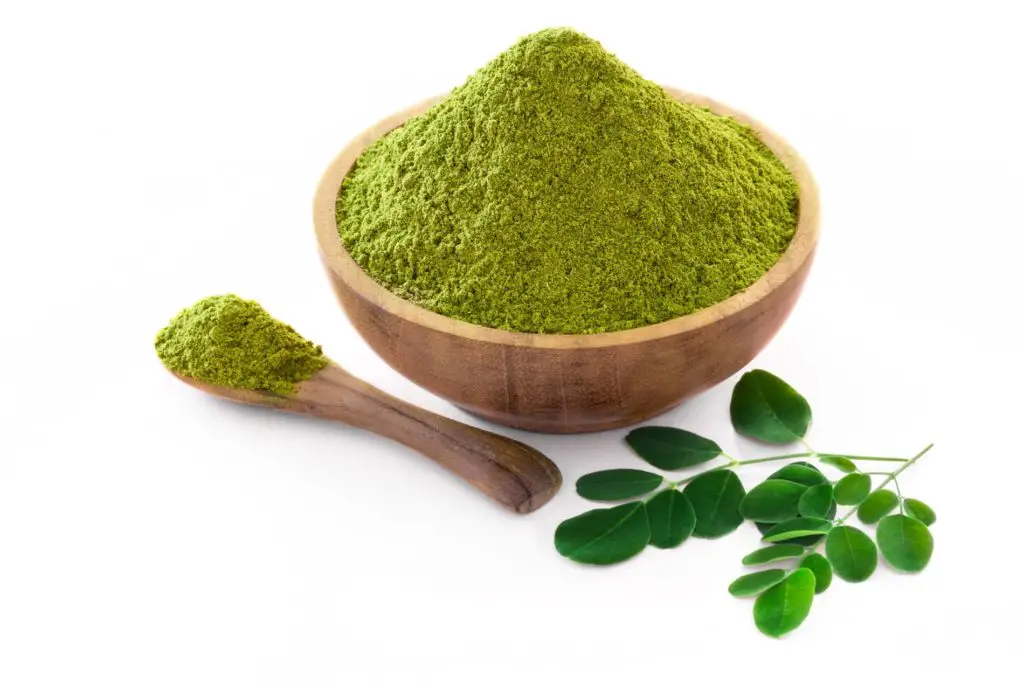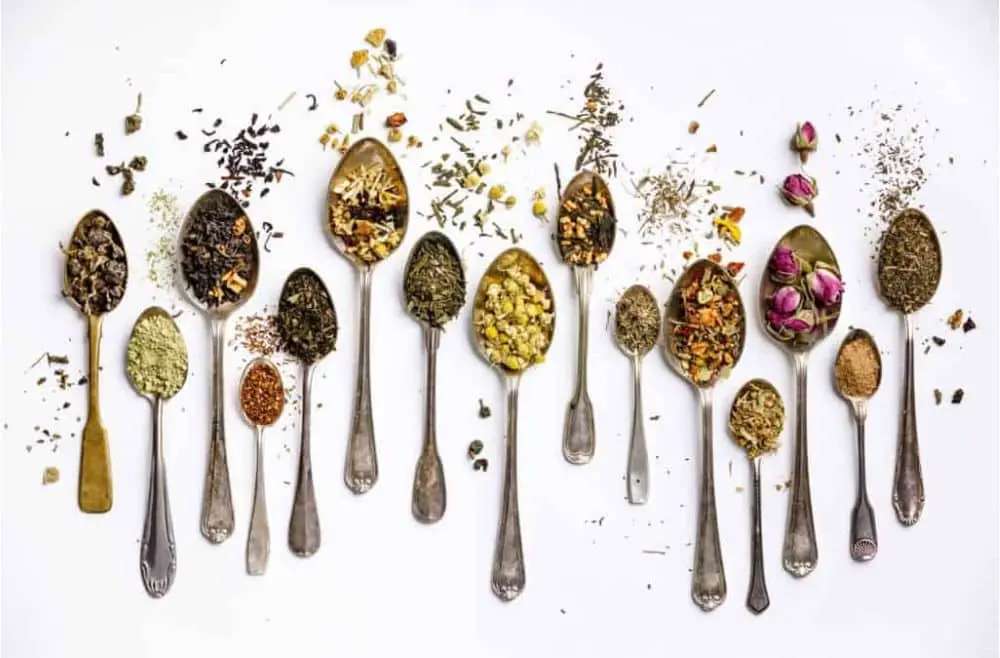Is there a low-histamine tea and can you drink tea if you have histamine intolerance?
Diet can make a big difference when you’re sensitive to histamine. You probably knew that already! Histamine, a chemical involved in inflammation, causes the symptoms of histamine intolerance.
This means you must reduce your body’s histamine burden by taking foods out of your diet that increase histamine. Other problematic foods are those that produce histamine, like fermented foods, or interfere with the enzyme that breaks it down, diamine oxidase. (DAO)
You also must watch what you drink. For example, if you have histamine intolerance, you should avoid fermented beverages and beverages that contain alcohol. But what if you enjoy a hot cup of tea?
There’s a growing interest in the health benefits of tea, especially less fermented forms of tea, like green tea and white tea. One concern is whether drinking tea increases the amount of histamine in your body.

Low Histamine Tea: Is Green or White Tea a Better Option?
If you’re histamine intolerant, and you hear the word “fermented,” you might get scared, since fermented foods tend to be high in histamine. We know that fermented foods can aggravate histamine sensitivity symptoms.
Does that hold true for tea too? We know that black tea is fermented, a process that causes the leaves to oxidize. This gives black tea its rich flavor and dark color.
Green and white tea are not fermented. Instead, the leaves are dried in an oven or fried in a pan to keep oxidation from occurring. That’s why green tea has a green color, unlike black tea.
White Tea is the Least Oxidized
White tea is even less oxidized, or fermented, than green tea. It has a light, naturally sweet taste. Studies suggest it also have anti-microbial properties, even more so than green tea. (4)
Green and white tea are also rich in compounds called polyphenols. (1) It’s these components that give tea many of its health benefits.
Here’s where it gets interesting. A 2013 study found polyphenols in green tea blocked histamine release from mast cells. (1) Plus, polyphenols have an anti-inflammatory effect that’s beneficial if you have histamine intolerance.
A more recent 2021 study showed that tea alters immune activity and has some anti-allergic properties. One way it exerts its anti-allergic benefits is by lowering histamine and reducing IgE antibodies, the type linked with allergic reactions. (2)
Another Problem with Black Tea
Although black, green, and white tea all come from the same plant, fermentation and processing affects their polyphenol and caffeine content. Black tea is higher in caffeine than green or white tea, with white tea having the lowest caffeine level.
However, the caffeine content of white and green tea varies depending on whether it’s grown in the shade and other factors, but black tea usually have twice the caffeine content of green tea.
Why is caffeine an issue? Experts believe that caffeine blocks the activity of the DAO enzyme that breaks down histamine. So, drinking caffeinated beverages can worsen the symptoms of histamine intolerance.

What about Green Tea, White Tea, and Their Effects on Histamine?
Both green and white tea are lower in caffeine, so you would expect less DAO inhibition than with black tea. I recommend avoiding black tea entirely. Green and white tea have more health benefits anyway and they’re lower in caffeine. Also, find out whether matcha is low histamine.
Numerous studies show that the polyphenols in unfermented teas have potential health benefits. One of the polyphenols, called EGCG (epigallocatechin gallate) has properties that may lower the risk of some cancers, cardiovascular disease, and type 2 diabetes, although we need more research to confirm this. (5)
White tea contains the high levels of polyphenols too because it’s least processed. Since white tea contains the most polyphenols (polyphenols have an anti-inflammatory effect) and is lowest in caffeine, it’s a better option than green or black tea.
Everyone is a little different, but the patients I’ve talked to can usually tolerate white tea, even more so than green tea. Still, I would limit white tea to no more than 2 cups per day and monitor your symptoms closely.
White tea is little harder to find than green and black tea. I buy loose-leaf white tea and brew it at home. If you buy white tea in tea bags, you’ll get mostly shavings rather than the whole leaf. Avoid drinking bottled white tea. It’s usually high in sugar and contains fewer polyphenols.
Herbal Teas Are Another Option if You Have Histamine Sensitivity
Herbal teas, also known as tisanes, are another way to enjoy a soothing hot drink without fear of worsening histamine intolerance symptoms. Some herbal teas also have anti-inflammatory activity and may help stabilize mast cells.
A tasty example of a tisane that stabilizes mast cells is ginger tea. It’s easy to make a cup of ginger tea at home. Here’s how:
- Slice ginger root thinly.
- Bring a pot of water to a boil. Put the ginger in once it’s boiling.
- Put a lid on it and turn off the heat. Let it steep for 10 minutes.
- Take out the ginger slices and pour your brew into a teacup.
- Enjoy!
Discover 5 low histamine hot drinks you can make. Also, find out more about chai tea and histamine intolerance.

The Role of Moringa in Reducing Histamine Release
You can also make a tea out of a plant called Moringa oleifera, commonly used in herbal medicine. Research finds that compounds in Moringa block several stages in the allergic responds. (3) Therefore, not only would it be safe if you have histamine intolerance, but it may be beneficial.
Even if you don’t have allergies or histamine intolerance, there are some compelling reasons to drink moringa tea. Would you believe it has seven times the vitamin C of an orange? It’s also rich in potassium, vitamin A, calcium, iron, zinc, and essential fatty acids. It’s also a rich source of antioxidants.
You can make moringa tea from dried moringa leaves or from moringa powder. Along with making moringa tea, I sprinkle moringa powder into soups, stews, and smoothies for extra nutritional value. Interestingly, my hay fever symptoms disappeared after I started doing this.
Here are instructions on how to make moringa tea from moringa powder. (https://www.greenlivingzone.com/how-to-prepare-moringa-leaves-for-drinking/)
Should You Drink Tea if You Have Histamine Intolerance?
You can still have a cup of tea if you have histamine intolerance, but stick to green or white tea, since it’s not fermented like black tea. Herbal teas are another option. Ginger tea and moringa tea may offer benefits, since they reduce inflammation and histamine release. Also, discover antihistamine herbs you can use to make a tasty tea and some of the best antihistamine teas.
References:
- Maeda-Yamamoto M. Human clinical studies of tea polyphenols in allergy or lifestyle-related diseases. Curr Pharm Des. 2013;19(34):6148-55. doi: 10.2174/1381612811319340009. PMID: 23448449. https://pubmed.ncbi.nlm.nih.gov/23448449/
- Food Funct. 2021 Jan 7;12(1):57-69. doi: 10.1039/d0fo02091e. Epub 2020 Nov 26.
- Abd Rani NZ, Kumolosasi E, Jasamai M, Jamal JA, Lam KW, Husain K. In vitro anti-allergic activity of Moringa oleifera Lam. extracts and their isolated compounds. BMC Complement Altern Med. 2019;19(1):361. Published 2019 Dec 11. doi:10.1186/s12906-019-2776-1.
- American Society For Microbiology. “White Tea Beats Green Tea In Fighting Germs.” ScienceDaily. ScienceDaily, 28 May 2004. www.sciencedaily.com/releases/2004/05/040526070934.htm
- Suzuki Y, Miyoshi N, Isemura M. Health-promoting effects of green tea. Proc Jpn Acad Ser B Phys Biol Sci. 2012;88(3):88-101. doi:10.2183/pjab.88.88. https://pubmed.ncbi.nlm.nih.gov/22450537/


A little more editing of this article would help. There’s few typos, etc. “although we need more search to confirm this. (5) Should be “research”
Also “White tea contains the high levels of polyphenols too because it’s least processed. Since white tea contains the most polyphenols (polyphenols have an anti-inflammatory effect) and is lowest in caffeine, it’s a better option than green or white tea.” I assume that the last 2 words in the sentence should be black tea, otherwise the sentence reads white tea is better than white tea.
Thank you, Amy, for pointing that out! Agree with you. Typos reduce the credibility of an article. Hoping one of these days to hire an editor. Thanks for your help and for reading. 🙂